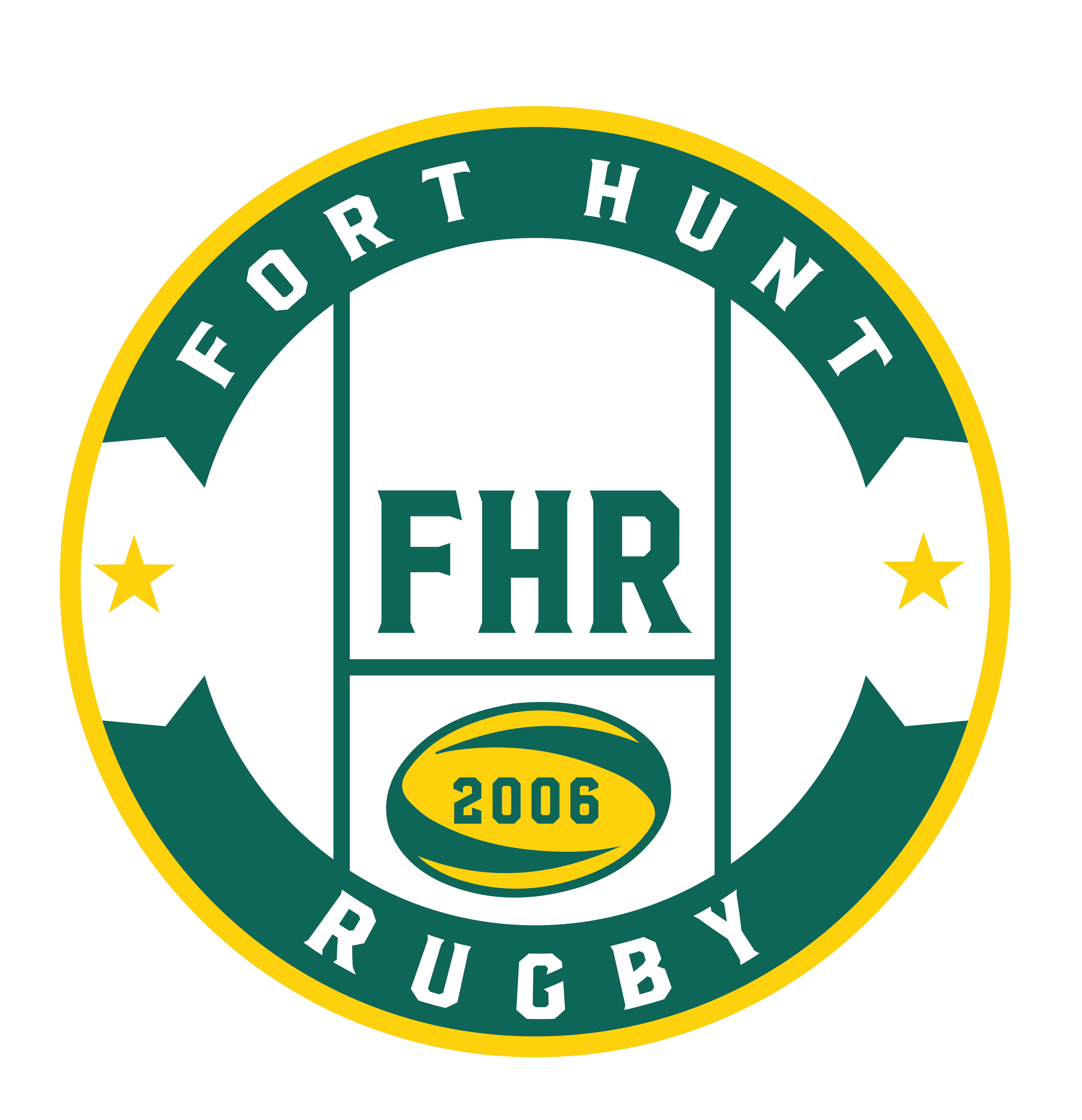All About Rugby
Rugby is the newest Olympic sport, debuted in the 2016 summer Olympics, and the Rugby World Cup is coming to the United States in 2031. So who wouldn’t want to learn about it? The best way to learn it is by participating, as a player or as a parent/supporter.
Fort Hunt youth rugby is a fast-paced, exciting, highly participative, non-specialized, high-scoring, player-centered sport for boys and girls (10-18). Youth rugby emphasizes FUN and SAFETY (see our Philosophy and Health and Safety sections), running with the ball, running in support, passing, kicking, and tagging/tackling. No matter what position he/she plays, every player gets to carry the ball, tag/tackle and score, throughout the match. Everyone plays offense and everyone plays defense, with continuous play making things dynamic and very fast-paced; there is no standing around. Everyone participates in all aspects of play, with little player specialization. Our rugby players have fun, and that is the primary goal of our program.
As a player-centered sport, rugby players become improved decision-makers, learning to think quickly and independently about what is coming and what to do next, and how to support each other as play continues. We emphasize decision-making and team skills (offense, defense, scrums, lineouts, rucks, and mauls (see our Rugby Lingo page) as well as discipline, respect, and sportsmanship (see our Philosophy section). Winning is fun, a lot more fun than losing, but it is not the focus of our program. Our program’s primary objective is for players to have fun learning about and playing rugby while growing and developing as young adults. Rugby is a sport they can play for their entire lifetime.
Youth rugby is a great way to get and stay in shape or get in shape. A player will leave the Fort Hunt Rugby program more fit and ready to go for the next activity. Players will stay active throughout the entire year with our program, with two or three practices per week, and matches on weekends.
Fitness. Since most players are rugby novices, in training we emphasize individual and game skill development over fitness, with the training and matches we undertake providing ample opportunities for exercise. Players who commit themselves to their team and the program will exit the program fitter than they began (the same is true for coaches!).
All Fort Hunt Rugby coaches have current USA Rugby national coaching certifications. Safety is our first priority.
The overall goal of the Fort Hunt Rugby program is an enduring Fort Hunt Rugby Football Club (RFC), an organization that fields viable, highly competitive teams where players depart in search of further opportunities to play rugby. See more on our History and Future pages.
Our long-term vision is for young players involved in the program recently and currently to continue playing rugby as adults, then return to the area as college students and young adults and assist with coaching, and to come back to the area and to help manage and coach in our program as permanent volunteers. Ideally, Fort Hunt Rugby players will have their own kids in due time, and they will coach their kids in the Fort Hunt Rugby program, or somewhere out there in the Great Big World, contribute to or establish their own youth rugby program to foster the growth of this lifetime sport.
Tackle Rugby
Coaches will make a determination if a novice player is ready for tackle rugby, and they (coaches) are the sole decision-makers. Players must be able to safely control themselves and their contact in the match, for the safety of others and themselves.
Fort Hunt Rugby actively discourages the mindset of “the big hit.” The tackle in rugby is designed for only one thing: to bring a ball carrier quickly to the ground so the ball will be released, leading to competition for the ball and the opportunity to gain possession. A “big hit” is a waste of tackler energy, opens the tackler and ball carrier to injury and penalties, and usually does not lead to a tactical advantage. Slamming, throwing, spearing, lifting, one-arm shots, a shoulder shiv or charge, scrag/sling tackles, flying tackles and all contact above the line of the sternum are monitored closely by referees, are strictly prohibited as dangerous play, and will be dealt with immediately and strongly in training and in matches. All of these forms of contact, while permitted in some other sports, are prohibited as dangerous to both the tackler and the ball carrier.
Contact resulting from foul play is very rare, with dangerous contact usually due to accidents or novice players forgetting their training or becoming carried away emotionally. We recognize this and are proactive, in training and in matches, to educate/train players and to keep themselves under control.
Make no mistake, tackle rugby is a highly intense, fast-paced, full-contact sport. Controlled and focused aggression and the precise and controlled use of physical force are integral aspects of play, and we will train in this. The Fort Hunt Rugby spirit is one in which, during the match, we will play our opponents as hard as we possibly can, without compromise and within the Laws of the Game–and we expect the same in return–but before and after the match, we are all rugby players, and therefore mates.
IRB Rugby Ready Videos
Players, parents, and coaches, check out these IRB videos from their Rugby Ready series.
You can also get yourself a profile, sign in, and take the Rugby Ready course. It’s easy, fun, has videos to watch, and is a great way to become familiar with the game and start down the path as a volunteer.
Registration and Fees
